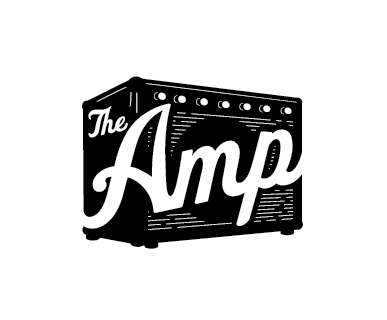John Calvin Abney: Familiar Ground
March 2020 will be remembered as the month the music stopped. John Calvin Abney was set to tour with his long-time collaborator, John Moreland, to promote his latest record (LP5) when the pandemic shut everything down. That’s when Abney holed up at his current home in California’s Bay Area to begin writing the songs that would become Familiar Ground. He says, “I had written some of the songs before everything went down, but some of the songs really took form as I had this surplus of time and lack of tour so I ended up having a lot of mental space and physical space to delve into writing. I also got to workshop some of these songs and hone their edges.”
The result is a collection of songs that reflect the laid-back contemplation of an artist who suddenly had plenty of time to reflect. “The whole record was made in the most mellow of all mellow spaces, just my bedroom.” He says, “Moreland did his part from his place and I did my part from my place and the whole thing was tracked remotely. It was extremely easy and relaxed without any stress of being in a studio or a van. It just came to be. It was captured in a moment of amber. It was mellow, like watching the afternoon come on. It wasn’t stressful. You didn’t have to rehearse a band or anything. It was like painting.” Abney would assemble the tracks piece by piece using an old iMac. He would record the guitar, piano, and Mellotron parts then send them over to Moreland who would add drums and bass. The two would bounce the tracks back and forth between their home studios to finish them.
I asked John if having so much time to finish the record without outside distractions gave him too much of an opportunity to dwell on each part of the process. He assured me it did not. “I stopped nitpicking on my recording the better half of a decade ago,” he said. “Perfectionism was my worst enemy. The more I nitpicked, the more I found disdain for what I was doing. I stopped liking my own art. It was more of a tumultuous relationship with the art I was making at the time.”
John Moreland played such a big part in making Familiar Ground I wondered how Moreland was doing during this down time. Abney said, “He’s just living, loving and writing. Just being. That’s all we can hope to be - just exist. That’s such a task within itself.”
“I feel like I had spent years accidentally obscuring parts of who I am through constant work and now, every single day heading forward, I find out a little bit more about myself,” he reflects. “Familiar Ground’s a good step towards that because I’ve found that the softer, more contemplative compositions speak more to me as a person than earlier records I’ve made with bombastic arrangements.” During a conversation with John, I commented on how the new songs take a few listens to fully appreciate because of the depth of the lyrics. He agreed saying, “This is kind of the path I’m on right now. This is kind of how I’m writing. It speaks true to my voice instead of me trying to run down the alt-country path non-stop. This more contemplative stuff is kind of my wheelhouse, I want to thrive in that world a little bit longer.”
I asked John to give his perspective on the tracks that comprise Familiar Ground.
“The song ‘When This Blows Over’ came to be when I was missing California pretty bad, missing my friends, and missing the coast. I feel like I was trying to capture the feeling that we’re all isolated but on the back end of this thing we're all gonna see each other again and we’ll revel in that. It’s not a super hopeful song but it’s the reality, like when we can - we will. Not like there’s golden days ahead; it’s like when the day comes we’ll spend some time together.“ The track features Whit Wright on pedal steel. Abney says, “I’m a terrible pedal steel player. The line he wrote for this was iconic. He really knocked it out of the park.”
“Shine Like a Friend” – “I feel I’ve been working on all this music for the better part of my life and I feel like I was always trying to be someone else. That song feels like I’m coming to terms with my own voice and who I am; what I can and can’t do. Who I am in general. I was doing a lot of walking. I was isolated, couldn’t spend time with anybody and [was] thinking about how important it is to recognize your self-worth and recognize your own strength even if you feel weak.”
“I wrote ‘I Don’t Get Excited Much Anymore’ before the pandemic. A lot of venues and bars I’ve loved were shutting down even before the pandemic and this is kind of my take on buying one of those places and being the guy carrying it on whether or not it brought me happiness. Just to do it to preserve the place for generations ahead. A lovely thought on holding those places dear and keeping them safe.”
“Evening Tide” – “I think I wrote the lyrics to that song like 20 times. It has a lot to do about death. I feel like I’ve lost a lot of friends and family and they stick with you. You see these impressions of the people you love that have transitioned on. You see them in other people and places. It’s almost like they’re not gone. I thought to myself folks aren’t ever really gone as long as we can keep them in memory. Not dwell on the memories but if you want to see that person again, just think of those good times. I wrote that song over and over again. But the music was done pretty quick. Death is no easy topic to write about anyway. I feel like it’s hard enough to write about such an abstract concept even if we all deal with it. It’s such a vast topic.”
“The Contractor” – “A love story between a woman and a man who’s a junkie. That parable played out a lot in my life with friends and family. That was a tough song. I wrote it in L.A. while on tour when I was thinking about some loved ones and addiction and how absolutely wretched a person can feel when they’re a junkie in love. I’m lucky enough to have dodged that bullet for the most part in my life, but I’ve seen a lot of people struggle and a lot of relationships go belly-up. I’m no stranger to that situation and I wanted to detail that in a song.” I asked about the significance of the song’s title. He explained, “My father was a contractor his entire life – and so am I, technically.”
“‘Signs of Weather’ was written in the van. It’s about feelings of isolation and sick with nostalgia and the slog of time. Like I say in the chorus: ‘It feels like running on feet of clay / I’m closer to the ground every day.” Are we spending our time in meaningful ways? At least the quarantine has taught me that most of my career as a musician I thought was more of a passionate charge, a romantic past, but I was getting more of a buzz out of it. At times it felt narcissistic or egotistical to run ahead with that; almost as if you weren’t doing it for the world but for yourself. It’s easy to get caught up in that trap. I feel like with quarantine that song was important for me to recognize that I actually love poetry, I love songs. It’s not mine, It’s the world’s. How dare I put it in that perspective that I think I own these. That I can fight against time.”
“Showing Up Late” – “Another one about time with a comical twist. I like to detach from time itself, it helps me better appreciate where I’m at in my day if I don’t have to look at my phone. Being an artist on the road, that’s your day- everything is planned for months at a time. That can be frustrating. I’ve been loving it [down time from the quarantine]. Time is a cage. I’ve appreciated the time off because I’ve been able to take a hard look at what makes me tick, what makes me happy, what brings me joy in this life and a lot of that has to do with being around friends and family. That’s a funny lesson to learn at the age of 31.”
“Familiar Ground” - I wrote that about my father passing away. His last words to me before he passed were, ‘I just really want some familiar ground right now.’ I was just trying to tell the story of how I was grieving; how we get through the world. Hard to put a 30-year, rather tumultuous relationship in six verses. Kind of a playful take on a couple things, but mostly about grief. That’s a tough son of a bitch.” Familiar Ground is John Calvin Abney’s fifth studio album and the first he’s written since his father’s passing.
“Tokyo City Rain” – “I wanted to end on a hopeful note. I went to Tokyo for a weekend. I wanted to go to Japan before I died. Between tours, I maxed out my credit card and emptied my bank account and just went to Tokyo for 48 hours. Just walked around the city and just absorbed it for a while. Prayed at the Meiji Shrine, took the Harajuku line all the way out to Ueno and all these cool places that I had only read in books. You realize that as a touring musician you go everywhere, but you’ve never really been anywhere. I wanted to go to Japan, so I went to Japan. The whole song is me coming to terms with ‘What was I chasing this entire time?’ It’s another evaluation of how I’m spending my time. Am I chasing this white whale that’s just an impossible dream or an unhealthy notion? Do I have to hate myself to make good songs? Do I have to drive myself in the dirt and dust to make myself feel important in this world? Do I have to play 300 shows a year in order to define myself? That’s me saying, ‘No, that’s not it.’”
It took me a couple passes through Familiar Ground before I began to pick up the layers of lyrical nuance. At first, the songs had a particular sameness but further listening proved that was the singularity of vision Abney has for the entire record. Each song is a different chapter of the same book. He has had a lot of time for introspection and has tried to answer many important personal questions in musical form. This is not a record for passive listening. If you want to appreciate the excellent songwriting, you’ll be repeating tracks a few times before moving on to the next one. John Calvin Abney is trusting his listeners to spend the time to look deeper into each song as he has taken the time to look deeper into himself. He says, “I think if I use my voice to tell the world that they don’t have to be alone, then that’s probably a win.”
Find more on JCA below:







